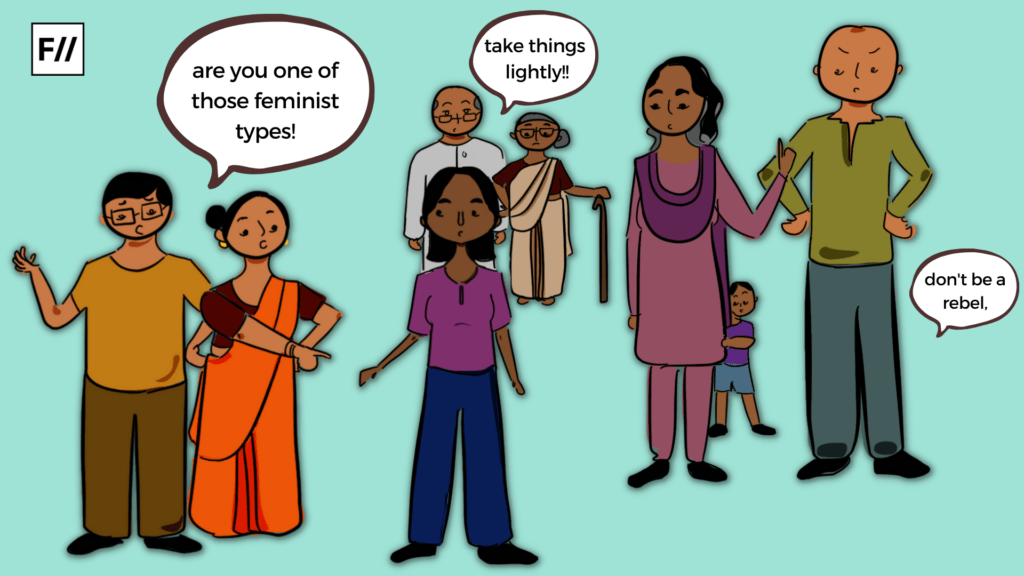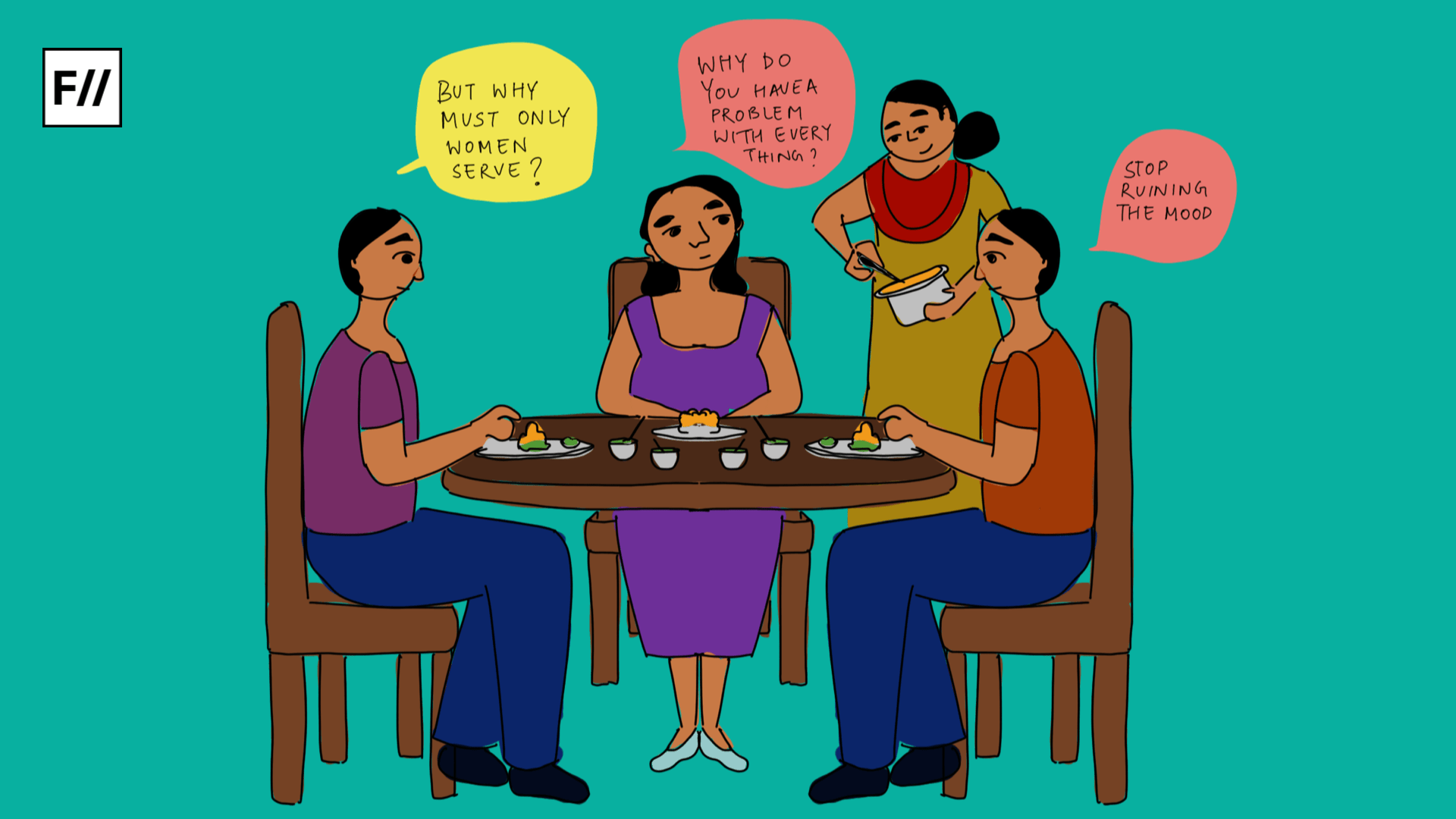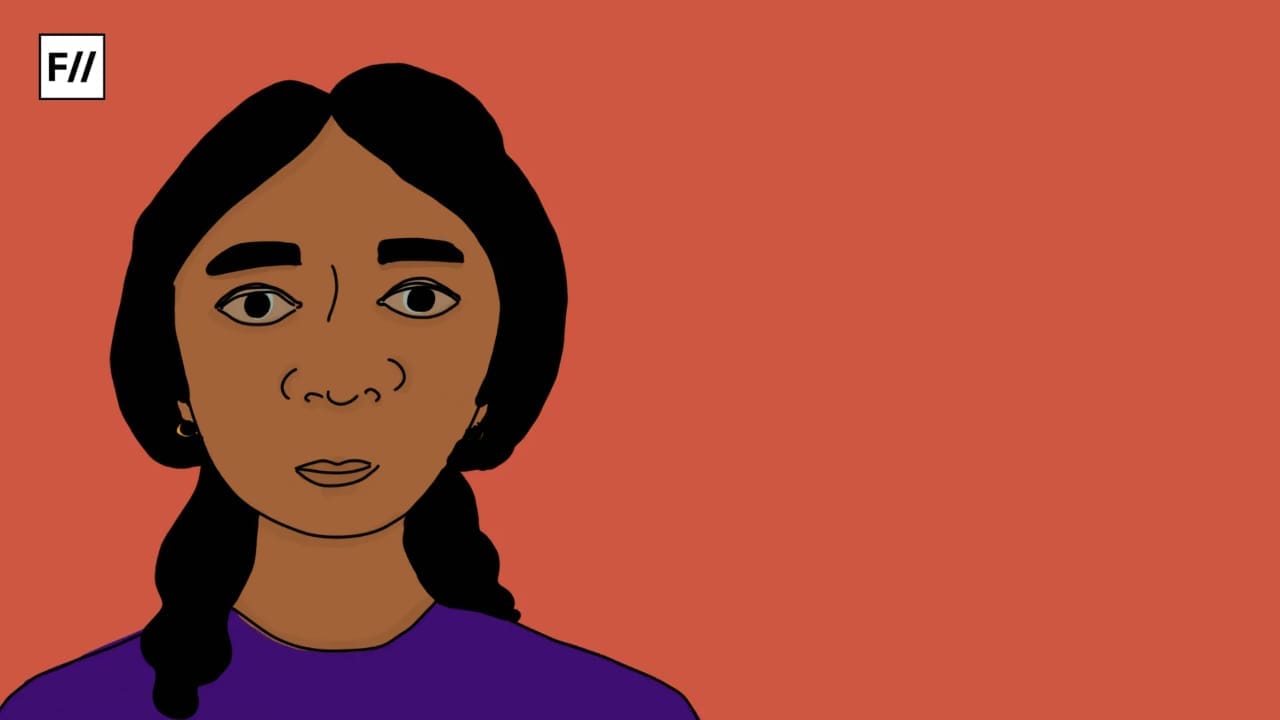I’ve come to realise that ‘Feminism’ has now become a negative word of sorts, exuding all kinds of cynicism one can think of. In fact, identifying oneself as a feminist itself is perceived as derogatory, which is probably why many shirk away from doing so. Of late, feminism has become an often discussed topic, probably owing to its ‘notoriety‘. But is it recognised in all scenarios? I doubt.
In the wake of multiple #MeTooKerala allegations, with powerful men throwing their weight around and launching tirades of victim-blaming, it is imperative that we contemplate on some routine instances of gender imbalance that we often consider trivial.
The other day, there was an explosive argument at home – me vs. the rest of the clan. In fact, it has been an ongoing point of contention for some time now, which initially rolled into motion when it was time for a haircut for my son. Yes, haircut. It commenced with everyone suddenly fretting over the fact that his hair is a bit too long, and that he looked like a ‘girl’, to which I suggested that we let it grow for once.
As expected, it was not well received. Every single person in the family: my parents, husband, in-laws, extended family, family friends, every single one of them went up in arms. They couldn’t fathom that I had the audacity to make such a blasphemous suggestion. The most commonly and vehemently quoted reason was – ‘it will be uncomfortable for him’. To which I responded, ‘how come no one ever mentions this in the case of a girl child?’, and went on to list examples of long-haired girl children in our circle (in my son’s age group) and how no one ever gave a thought about their discomfort.
The sad part is, at the end of it all, I still couldn’t drive the point home, because people are already bought into the pre-conceived notion of boys having short hair, and girls having long hair (no matter the discomfort), as the norm.

The fact is that such unidentified, unrecognised gender biases exist in each one of us. Let me quote another example. A while ago I came across a forwarded video which had a question to ponder in the end. The story goes like this – ‘A young man is going in for his first job interview. He is sitting inside a parked car with his father at the wheel when he receives a phone call. The call is from the CEO of the company he is interviewing for and the CEO says, “Good luck, son!”.
How was that possible? That was the question posed at the end of the video and it surprised me that I couldn’t figure out for a long while that it must have been his mother on the phone line, who was the CEO. It hit me quite hard that despite me being a person who has always professed to be a feminist and have been vehemently vocal about women’s rights, I too have internalised gender bias, which inhibited my mind to think of a woman CEO as a natural choice. I posted this on social media and many of my feminist friends told me they had the same experience as me.
Like most people misconstrue, feminism is not aimed at putting women on a pedestal and giving them unfair prerogatives. Feminism came into existence because women are more systemically oppressed than men are, denied access to equal decisive power, thrust into violence, feel more unsafe than men do in most circumstances
I believe such gender biases have been constantly seeping into our psyche because of many subtle factors in our day-to-day life that we fail to notice. For example, there are different titles for a woman, which clearly demarcates her from being a single or married woman – Miss and Mrs, as if marriage is something that defines the existence and identity of a person. Even if that is the case, why do titles need to define the identity of only women and not men? Why is Mr. the only title that men adorn, no matter their marital status?
This is a very elusive and unnoticed example for gender bias. However, all of us have been subject to many more conspicuous ones all through our lives. My educated, fairly open-minded parents who never worried about me while I was living abroad in my 20s all by myself, started behaving entirely different when I was under their roof, in my 30s.
I invite their wrath if I come home late at night, wear ‘revealing‘ clothes, and it is worse if I leave without reporting to them about the specifics. However, my husband seems to be insulated from such judgements and stipulations, despite the fact that we both are fully-grown adults who have travelled the world and are capable of taking care of ourselves, and raising a child of our own.
Gradually, but painfully, I have come to realise that this attitude of many Indian parents if not all, arise more from a place of internalised patriarchy, as well as the fear of societal judgements, and less from a place of concern. And that is what is worrying.
Also read: As #MeToo Kerala Blazes On, Vijay Babu Becomes The Caricature For Self-Victimising Predators

Along with this fear, there is also another element that subtly runs as background noise in the lives of many women, especially the ones from marginalised social locations – the notion of being in the wrong, always. A neonatologist friend was describing about the kinds of distress families put new mothers through.
It was in 1949 that feminist scholar Simone de Beauvoir wrote: Enough ink has flowed over feminism, it’s almost over. Let’s not talk about it. But from how far we have progressed, it seems our quills cannot afford to dry out, even 3/4th of a century later
Once, a new mother passed him a slip discreetly without the rest of the family noticing. “Please tell my mother and mother-in-law that I have ample breast milk for the baby.” Can just the hormones be blamed for post-partum depression? I doubt. Another time, there was a husband, a new father, who requested a private meeting with the doctor, just to tell him that his wife should not be made aware of the option of formula because apparently, she may then slack in breast-feeding the child. It is so easy for even the closest of people to assume the worst in women, because we are supposed to be inherently flawed, incapable of handling our own agency and people assume the right to constantly correct women.
All these little things which we seldom give enough weightage to, contribute to the bigger question – Why do we need feminism?

Like most people misconstrue, feminism is not aimed at putting women on a pedestal and giving them unfair prerogatives. Feminism came into existence because women are more systemically oppressed than men are, denied access to equal decisive power, thrust into violence, feel more unsafe than men do in most circumstances.
The reality of the matter is that these seemingly minor, trifling everyday instances which we barely notice, proliferate beneath our façade of a perfectly-functioning society. In her famous Ted Talk, actor and feminist Rima Kallingal mentioned how she would fight over fish fry on the dining table as a child because her family felt that her brother deserved more portion than her. This was widely misunderstood and even taken out of context leading to massive online harassment of the actor.
Her talk is yet another testimony to how deep rooted gender-bias is, and how innately it extends its tendrils into the society, ultimately leading to the systemic oppression of women and individuals of other marginalised genders, without any of us even realising it.
It was in 1949 that feminist scholar Simone de Beauvoir wrote: Enough ink has flowed over feminism, it’s almost over. Let’s not talk about it. But from how far we have progressed, it seems our quills cannot afford to dry out, even 3/4th of a century later.
Also read: Vijay P Nair Case: Why My Feminism Is Loud And Destructive
Aarathi is a technology consultant & entrepreneur by the day, aspiring writer by night and passionate globetrotter through all seasons of the year. She lives in Kochi and works as an Innovation Strategy Consultant with Ernst & Young. She is on Facebook, Instagram and LinkedIn
Featured Illustration: Ritika Banerjee for Feminism In India





“I too have internalised gender bias, which inhibited my mind to think of a woman CEO as a natural choice.”
There are more male CEOs just as the world’s most dangerous jobs (miners, loggers, roofers, iron and steel workers, electrical workers, construction workers, firefighters, police officers, etc.) are worked by men. 97% fatal work injuries and deaths are of men.The reason is because men do not have an option to sit at home and they must work and sacrifice everything. Only a tiny fraction among men reach the top to become CEOs while many end up in dangerous jobs. Women have the option to become homemakers, and if a woman can get a man to work 50 hours a week to provide her everything, she will be less determined to sacrifice everything to become a CEO. That is why there are less female CEOs. A man’s value is measured by how much money he has, that is why at the time of marriage a man is asked about his job, salary, car, house, etc. 70% suicides are of men because a jobless man is a worthless loser, nikamma and nalayak. Men suffer from hypertension due to joblessness and financial problems. Therefore men are motivated to work harder than women.
Everyday sexism can be witnessed on buses, where most women travel sitting, and most men travel standing. Apart from reserved seats, men are actually expected to give up their seats for women. When was the last time a woman gave up her seat for man? Or even for a woman? Even if there is a pregnant woman on a bus, other women just keep sitting shamelessly expecting a man to leave his seat. A woman does not even leave her seat for a pregnant woman. Even if there is a man on the bus with a child, women will not give up their seat. He will be left to stand with the child in his arms.
People don’t see the countless men who have tried to start a business, put in all their life savings, took a loan, business didn’t work out, and they ended their life. We never get to hear their stories. No one talks about men losing their limbs and their lives working incredibly dangerous low paying jobs. No one talks about men suffering from high blood pressure and dying from heart attacks due to job stress. No one mentions taunts from society and family which men face if they don’t have a good income. No one talks about jobless men ending their lives everyday. All people see in more male CEOs.